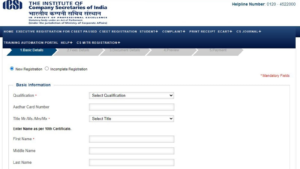Registration fee a money spinner? Student leaders raise red flag over LURN system

LUCKNOW Lucknow University’s (LU) decision to charge a registration fee of ₹100 from candidates seeking admission to the varsity or its affiliated degree colleges continues to be mired in controversy with student organisations alleging that the “move is a money spinner”.

Two sessions of applications have been completed, and student bodies allege that the university continues to extract money from applicants. Before filling in the enrollment form for LU or any associated colleges, a student must obtain a Lucknow University Registration Number (LURN) by paying ₹100.
Even if students fail to get admission to the university, the amount is not refunded. While this might not individually burden the applicants, the total sum collected can be significant. Last year, more than 2 lakh candidates applied for various courses against over 1.15 lakh seats in Lucknow University and its affiliated colleges.
This means the university made an amount of over Rs. 2-3 crore from registrations. At the same time, the main concern is about LU recovering money from over 85,000 applicants who fail to get admission either in LU or an associated college.
Since LU received A++ accreditation by NAAC in 2022, it has seen an annual increase of about 25% in applications. The amount received through registrations could spike to Rs. 3.5 to 4 crore this year.
National Students’ Union of India’s (NSUI) Vishal Singh said there is no utility in the LURN registration, claiming that maintaining a database was possible without it.
“Applicants should not be treated as money-making machines. LURN is unethical and should be completely scrapped. We protested and raised our concerns with the governor and other authorities, but received no favourable response. Two sessions later, we continue to oppose this system,” said Singh, echoing similar opinions from students.
Akhil Bharatiya Vidyarthi Parishad’s (ABVP) Saurabh Singh Bajrangi added, “There should be a provision for refunding the amount at least to those who could not get admission to the university or associated colleges, or LURN should be stopped entirely as it is unnecessary.”
All India Students’ Federation of India’s (AISA) plans to raise the issue by writing to the state’s higher education minister and the governor soon after the admission process ends, said a member.
Manoj Pandey, president of the Lucknow University Associated Colleges Teachers’ Association (LUACTA), said the amount should also be distributed among affiliated colleges.
“The university receives funds from the government, but to support development in associated colleges, it should share the total amount equally between the university and affiliated colleges,” he said.
University spokesperson Durgesh Srivastava, however, explained that LURN is important for compiling and merging data. “This not only solves the problem of assigning enrollment numbers, which used to be a major concern for students, but also helps curb malpractices by colleges, such as admitting students for longer durations than required. Additionally, it has become a surveillance system for the colleges,” he said.
‘Gap in LU’s revenue, expenditure a concern’
The gap between Lucknow University’s annual expenditure and revenue continues to be a matter of concern. The government grants about ₹50 crore for faculty salaries, but Lucknow University Teachers Association (LUTA) general secretary Anitya Gaurav said the varsity spends over ₹185 crore annually on the salaries of its regular employees.
“Additionally, around ₹10 crore are required for house tax, electricity, and sewer-related concerns. At the same time, running the departments and Tagore Library costs ₹10 crore, while another ₹10 crore are needed for civil works like maintenance and repairs,” he said.
“LU is also one of the first universities in the country to implement the New Education Policy. Considering its progress, the amount of grants and aid given by the government should be increased,” added Gaurav.
He also shared that even other sources of revenue, such as fees from self-financed courses, get exhausted in paying staff salaries.
“At least the salaries should be the government’s responsibility. Amid the revenue crunch, while the university is doing great in terms of rankings and research, it lags in infrastructure development. If all the revenue is consumed in paying salaries, development-related works will continue to be a matter of concern,” he added. HTC




